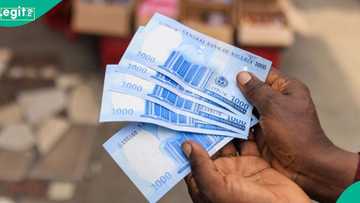From Etisalat to 9Mobile to T2: The Tumultuous Journey of Nigeria’s Fifth GSM Operator
Over the past two decades, one of Nigeria’s most recognisable telecom operators has undergone a remarkable transformation, from the celebrated arrival of Etisalat to the rebranding as 9Mobile, and now, its latest identity as T2.
The journey began in 2007 with Etisalat, and then a later rebrand to 9mobile under new investors kept the network alive, but operational challenges persisted, and market share slipped further.
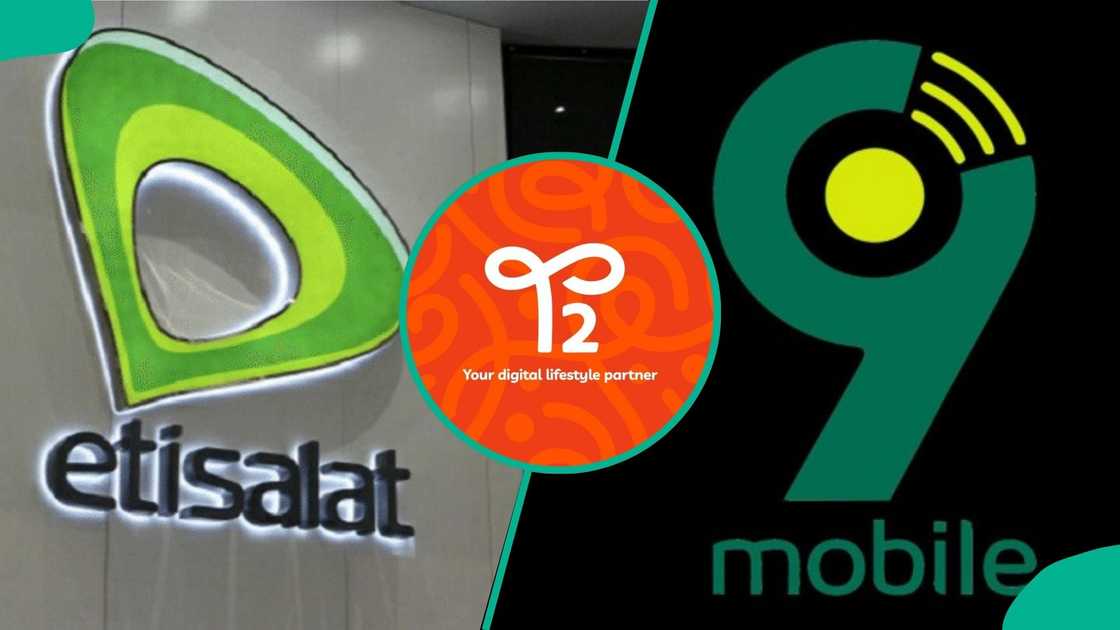
Source: UGC
Now, with the unveiling of T2 under majority owner Lighthouse Telecoms, the company is seeking a fresh start, one it hopes will finally turn its turbulent history into a sustainable success story.
This article traces the journey of Nigeria's fifth GSM operator, from Etisalat to now, T2.
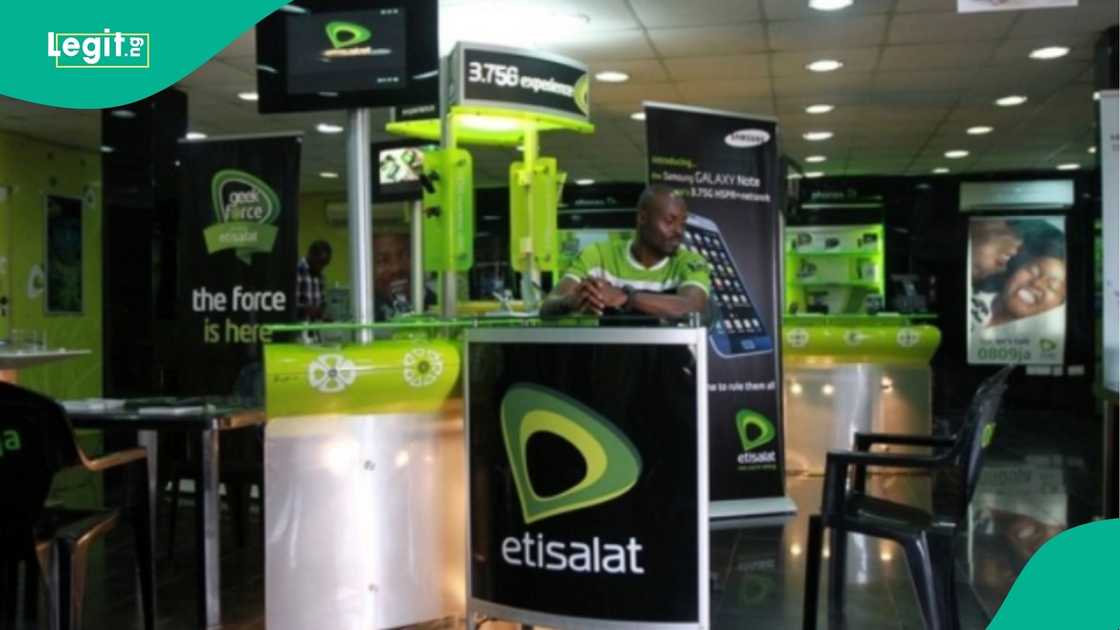
Source: UGC
Etisalat’s entry and exit from Nigeria
Etisalat, the Abu Dhabi-based telecommunications giant, entered the Nigerian market in 2007 through a strategic investment that marked it as the country’s fifth licensed GSM operator.
The move followed the acquisition of a 40% stake from Mubadala Development Company, the sovereign wealth fund of the Emirate of Abu Dhabi, which had earlier secured the operating licence for $400 million.
The company’s arrival was greeted with enthusiasm, largely due to its strong brand reputation and connection to the United Arab Emirates.
Launching its services in 2008, Etisalat quickly made an impression with innovative products, sleek marketing campaigns, and modern network infrastructure.
Heavy investments in advanced telecom equipment and network expansion propelled its growth, and within six years, the operator had won the loyalty of millions of Nigerian youths. By this time, its subscriber base had surpassed 16 million.
Despite these achievements, Etisalat faced an uphill battle from the start. Entering the market later than established competitors such as MTN, Airtel (formerly Celtel), and Globacom, it struggled to displace these dominant players, all of whom had already entrenched their market positions.
The turning point came in 2016, eight years after its launch, when Etisalat Nigeria encountered severe financial difficulties. Mounting debts and operational challenges strained the company’s ability to sustain growth.
By 2017, these troubles culminated in the exit of the Abu Dhabi-based Etisalat Group from the Nigerian market. The departure forced the local management to seek new investors to keep the network running.
In the aftermath, the company underwent a rebranding, marking the end of the Etisalat name in Nigeria.
Though its chapter in the country lasted less than a decade, Etisalat’s entry brought competition, innovation, and memorable brand experiences that reshaped Nigeria’s telecom landscape before its abrupt exit.
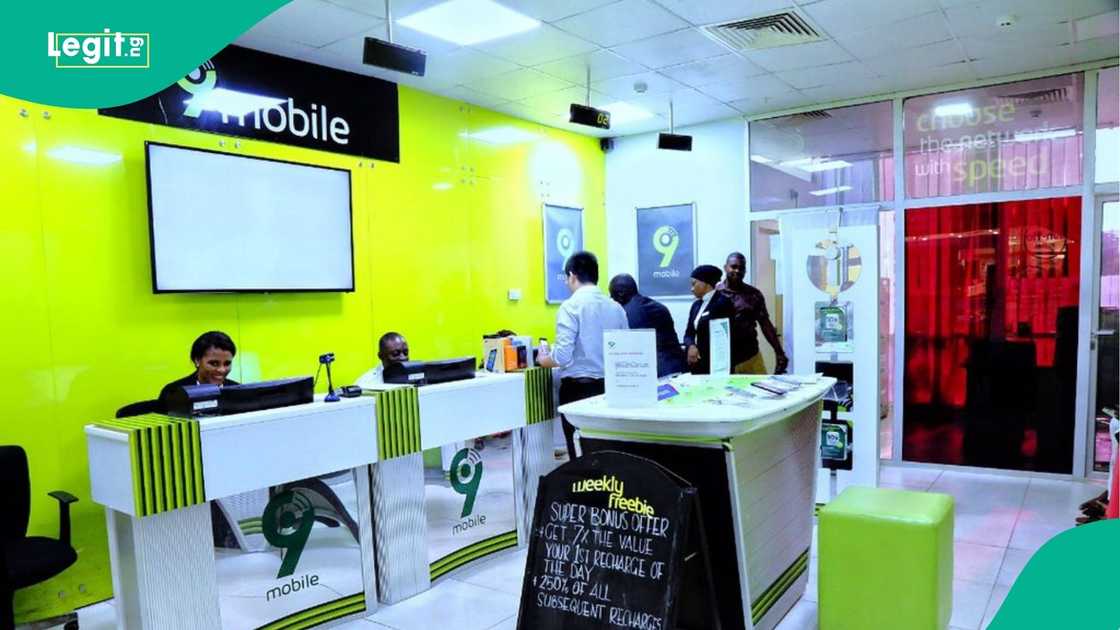
Source: UGC
9mobile’s brief journey in Nigeria
In 2016, eight years after its launch, Etisalat Nigeria fell into financial distress, prompting the exit of its Abu Dhabi-based parent company from the market in 2017.
To facilitate a smooth transition and rebranding, the Nigerian Communications Commission (NCC) approved the change of name from Etisalat to 9mobile in July 2017.
The rebrand aimed to give the telecom operator a fresh identity and align it with the vision of new investors. In 2018, Teleology Holdings, founded by Adrian Wood, former CEO of MTN Nigeria, alongside eleven partners, attempted to acquire 9mobile, making a non-refundable $50 million down payment.
However, Teleology exited the deal abruptly just two months later, leaving uncertainty around the company’s future.
Despite its new name and branding, 9mobile struggled to keep pace with larger competitors such as MTN, Airtel, and Globacom. Its market share continued to decline, hindered by limited resources for network expansion and operational improvements.
A fresh capital injection from remaining investors provided a glimmer of hope, enabling management to draft a new roadmap for revival.
This plan sought to tackle the company’s multi-faceted challenges, restore competitiveness, and reclaim lost market share in Nigeria’s highly competitive telecom sector.
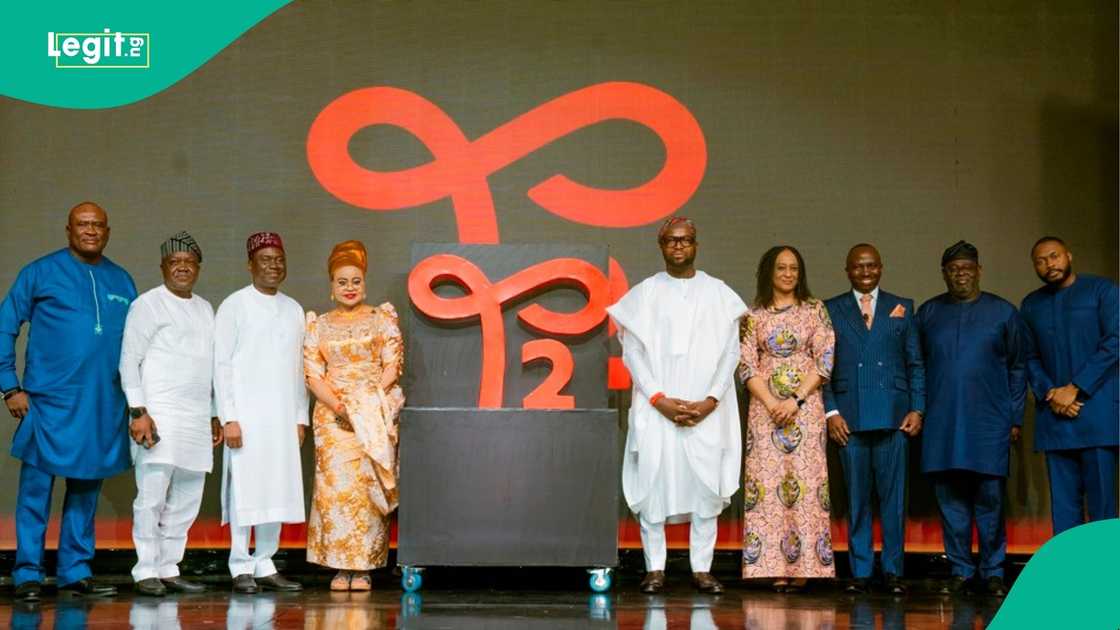
Source: UGC
9mobile rebrands to T2
9mobile recently unveiled a new identity, transforming its name, colour scheme, and logo into T2 – a brand it says embodies the spirit of “Tech meets Tenacity.”
The announcement marks another chapter in the telecom operator’s eventful history, which spans nearly two decades of turbulent operations, shifting ownership, and multiple rescue attempts since its origins as Etisalat Nigeria.
The rebrand was officially announced on Friday, August 8, signalling a fresh start under new ownership. The latest controlling shareholder is Lighthouse Telecoms, a UK-based company backed by Thomas Etuh, chairman of Lagos-listed Notore Chemicals Limited.
Lighthouse Telecoms now holds a commanding 95.5% stake in the operator, underscoring its commitment to steering the company into a more competitive position in Nigeria’s crowded telecom market.
While the T2 launch was accompanied by vibrant orange branding and optimistic messaging, the company faces the challenge of converting this marketing push into meaningful service improvements.
Analysts say that the rebrand’s long-term success will hinge on whether T2 can deliver faster, more reliable networks and innovative products that win back customers lost to MTN, Airtel, and Globacom.
For now, the new identity glows bright, but the true measure will show up in customer loyalty and the strength of its signal bars.
Don't miss out! Join Legit.ng's Sports News channel on WhatsApp now!
Source: Legit.ng




